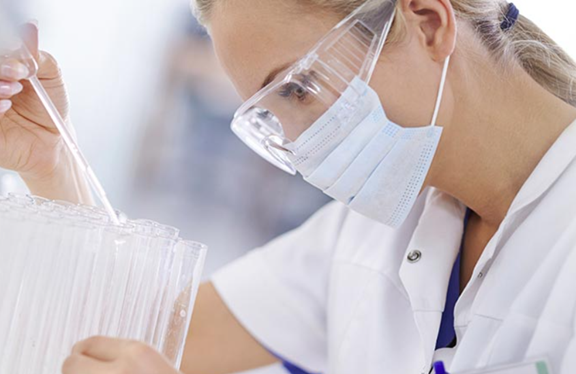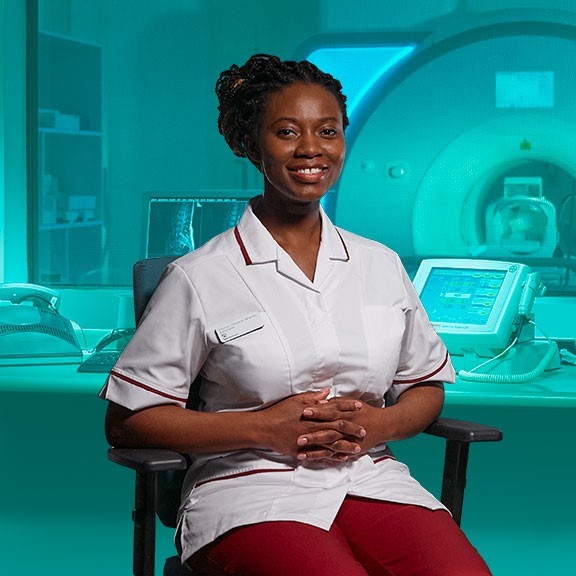Initial consultation with a Spire GP ‐ Attend our clinic or hospital for your initial appointment with your Spire GP
Premium Whole Body MRI Check
See what your body’s telling you - before it needs to
Call us to book (Mon-Fri 9am-6pm 0191 418 8633
Your health isn’t just about how you feel today it’s about understanding what’s happening beneath the surface.
Our Premium Whole Body MRI Check and comprehensive blood tests gives you a complete internal view of your major organs, joints and tissues, helping you spot early changes and gain clarity about your health.
What is a premium whole body MRI health check?
A health check for those who want reassurance about their wellbeing.
- Full-body MRI covering: brain, neck, chest, abdomen, pelvis, and spine
- Extensive suite of blood tests
- Same-day results and consultations
- Led by Spire GPs and Consultant Radiologists
- Private, comfortable environment
What's included?
Comprehensive blood testing ‐ Our expert team will talk through your medical history and take blood samples
Whole body MRI scan ‐ Your MRI appointment will be scheduled a week later
MRI review with a Consultant Radiologist ‐ Our Consultant Radiologist will take you through your MRI results; ensuring your understand them fully
Final results consultation with your Spire GP ‐ Your Spire GP will discuss your blood tests and MRI report and discuss any next steps
Detailed report and onward referral if needed ‐ You'll leave with a full report and if necessary, an onward referral to a specialist
- You want reassurance about your overall health
- Prefer to take a proactive approach to your wellbeing
- Would like expert insight into how your body is functioning
Blood tests
- Haematology*
- Kidney Function*
- Liver Function*
- Bone Profile*
- Diabetes*
- Cholesterol*
- Iron Profile*
- Endocrinology*
* For a full list of individual blood tests included please refer to the FAQ's

Why choose a Premium Whole Body MRI Scan?
Whether you’re driven by curiosity, intuition or simply a desire for peace of mind, this scan gives you the confidence of knowing
Complete insight - inside and out
An advanced MRI scan of your head, chest, abdomen, spine and pelvis and comprehensive blood tests gives you a detailed view of your body’s internal health
Expert analysis and personal explanation
Your results are reviewed by a specialist radiologists and explained by a Spire GP, so you can make informed choices with confidence
Designed for proactive people
You don’t have to wait for symptoms or a referral. This service is for those who believe that prevention and awareness are part of living well
A calmer mind, a clearer future
Walk away with reassurance that you’ve taken control of your well-being - because peace of mind is priceless.
Full body MRI scan with same day results £3,200
Now available at Spire Harrogate Clinic
You don’t need a GP referral. Simply contact us to arrange your scan and take the next step towards clarity and peace of mind
0% finance available subject to status*
Can anyone book a premium whole body MRI health check?
You must be aged over 40 and complete an MRI Safety questionnaire to ensure you meet suitability criteria.
Are there any hidden costs?
No. The price includes all appointments, scans, blood tests, consultations, and your final report.
What happens if something is found?
Our expert clinicians will guide you on the next steps, with fast referrals available across the Spire network.
Fast access to treatment with payment options to suit you
*A medical loan gives you the flexibility to spread the cost of private treatment.
Our partner Omni Capital Retail Finance offers a range of repayment plans including interest free finance – 0% APR Representative. Most applications are approved immediately meaning you don’t have to delay getting treatment.
Finance is available on a range of medical procedures including hip and knee replacements, weight loss surgery and cosmetic surgery.
- £1,000 minimum loan amount
- Repay over 10 months at 0% APR Representative or 9.9% APR Representative for terms from 12 months up to 60 months
- Easily check repayment options with our finance calculator and eligibility checker
Credit is subject to status, UK residents aged 18 years and over.
Frequently asked questions
What is a whole body MRI scan?
A whole body MRI (Magnetic Resonance Imaging) scan is a medical imaging technique that uses strong magnetic fields and radio waves to create detailed images of the inside of your body - without the use of radiation. It covers most major organs and systems, such as the brain, spine, liver, kidneys, pancreas, and muscles. This scan is increasingly being offered to asymptomatic individuals, meaning people who have no signs or symptoms of disease, as a proactive health check.
Why might someone consider a whole body MRI scan?
Many people choose this scan for peace of mind, or to detect serious diseases early, especially:
- Cancer (some types)
- Vascular diseases (e.g., aneurysms)
- Degenerative conditions (e.g., arthritis, disc disease)
Organ abnormalities that might not cause symptoms
What are the potential benefits of a whole body MRI scan?
Early Detection: It may identify diseases such as cancer at an early stage - before symptoms appear and when treatment may be more effective.
Non-invasive and radiation free: MRI does not use ionising radiation, unlike CT scans or X-rays, making it safer for repeated use.
Comprehensive overview: Provides a broad look at your internal organs and tissues in a single scan.
Reassurance: A normal scan can offer peace of mind about your health status.
What are the possible risks and limitations of a whole body MRI scan?
False Positives: The scan may detect harmless abnormalities that appear suspicious, which may lead to unnecessary anxiety and further tests including sometimes invasive tests.
False negatives: Not all diseases or small tumours can be detected, especially early stage cancers or very subtle changes. Therefore, a whole body MRI should not replace evidence based screening programmes (like mammograms, colonoscopies, etc.) which are designed for specific cancers.
Incidental findings: It may uncover unrelated issues (incidentalomas), which might not affect your health but could lead to further tests and possible interventions. Common findings and further tests which may be suggested include:
- Lung nodules (CT scan)
- Renal / liver cysts / nodules (US or CT, possibly MRI)
- Bowel polyps (colonoscopy or CT)
- Ovarian / uterine masses in females (US or MRI / hysteroscopy)
- Prostate lesions (MRI)
- Cardiac enlargement (echocardiography)
- Bone lesions (MRI or CT)
- Lymph node enlargement (US or CT)
What is the cost of a Premium Whole Body MRI Check?
The Premium Whole Body MRI Check costs £3,200 and includes:
- Initial Spire GP appointment
- Extensive suite of blood tests
- Full-body MRI covering: brain, neck, chest, abdomen, pelvis, and spine
- Same-day MRI results and consultation with Radiologist and Spire GP to discuss results
Can the cost of a premium whole body MRI check be paid for on finance?
Yes, the Premium Whole Body MRI Check can be paid for on 0% finance over 10 months through our partner finance company Omni Capital.
The finance provided will only cover the cost of the diagnostics and consultation. It does not cover the cost of treating any diagnosed conditions.
Treatment of any diagnosed conditions may be financed through a separate finance application. Not all procedures and treatments are eligible for finance, including but not limited to cancer treatments.
Finance is available subject to application and individual assessment by Omni Capital.
Is whole body MRI right for you?
Whole body MRI may be considered if:
- You have a strong family history of certain diseases (e.g., cancer or cardiovascular disease).
- You want a baseline for monitoring your long-term health.
- You're willing to manage the potential stress of incidental or uncertain findings.
What blood tests are included in the price?
Your package includes the following blood tests:
- Haematology: White cell count, Red cell count, Haemoglobin, Haematocrit, Mean cell volume, Mean cell haemoglobin, Red cell distribution, Platelet Count, Erythroctye sedimentation rate (ESR)
- Kidney Function: Sodium, Potassium, Urea, Creatinine, Estimated GFR
- Liver Function: Total bilirubin, Alkaline phosphate, Aspartate transferase, Gamma GT, Albumin, Total Protein, Globulin
- Bone Profile: Alkaline phosphate, Calcium, Adjusted calcium, Phosphate, Urica acid, Total protein, Globulin
- Diabetes: HbA1C
- Cholesterol: Cholesterol, HDL cholesterol, Triglycerides, Cholesterol: HDL ratio, Non-HDL cholesterol, LDL cholesterol
- Iron Profile: Iron, U.I.B.I.C, T.I.B.C, Transferrin saturation, Ferritin
- Endocrinology: CA125, PSA, Thyroid stimulating hormone, Free Thyroxine, Vitamin D
Bowel cancer: signs and symptoms
Bowel cancer is the fourth most common cancer in the UK. However, over half of cases are diagnosed at a late stage.
Read moreHow do MRI scans really work?
MRI scans are used to capture detailed images of what’s going on within your body and unlike an X-ray or CT scan, do not use radiation.
Read moreAsk the expert: what are fibroids?
Fibroids, also known as uterine fibroids, affect around one in five women in the UK aged between 30 and 50.
Read more




